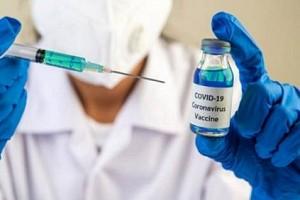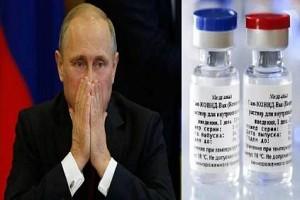SCIENTISTS DEVELOP NEW COVID-19 VACCINE GIVEN IN 1 DOSE VIA NOSE - REPORT!
Home > News Shots > IndiaAs world experts are working together to come up with a vaccine for COVID-19, scientists have developed a vaccine against deadly coronavirus that can be given in one dose via the nose. This vaccine is effective in preventing infection in mice susceptible to the novel coronavirus.

Experts say, it is an advance that may lead to protective candidates that can curb the pandemic. As per News18 report, as there are several COVID-19 vaccine candidates currently under development, the study, published in the journal Cell, stated that one delivered via the nose will help in targeting the initial site of infection. Also, it can cause a more widespread immune response.
"We were happily surprised to see a strong immune response in the cells of the inner lining of the nose and upper airway — and a profound protection from infection with this virus," said study senior author Michael S. Diamond from the Washington University School of Medicine.
"These mice were well protected from disease. And in some of the mice, we saw evidence of sterilising immunity, where there is no sign of infection whatsoever after the mouse is challenged with the virus," Diamond added.
In developing the nasal vaccine, the researchers inserted the virus' spike protein, to invade cells, inside another virus called an adenovirus. From there, adenovirus carries the spike protein into the nose and enables the body to mount an immune defense against the novel coronavirus without becoming sick, News18 further reported.
"Adenoviruses are the basis for many investigational vaccines for COVID-19 and other infectious diseases, such as Ebola virus and tuberculosis, and they have good safety and efficacy records, but not much research has been done with nasal delivery of these vaccines. All of the other adenovirus vaccines in development for COVID-19 are delivered by injection into the arm or thigh muscle. The nose is a novel route, so our results are surprising and promising," said study co-senior author David T. Curiel.
"Vaccines that require two doses for full protection are less effective because some people, for various reasons, never receive the second dose," Curiel added. He said it is also important that a single dose produced such a robust immune response.





